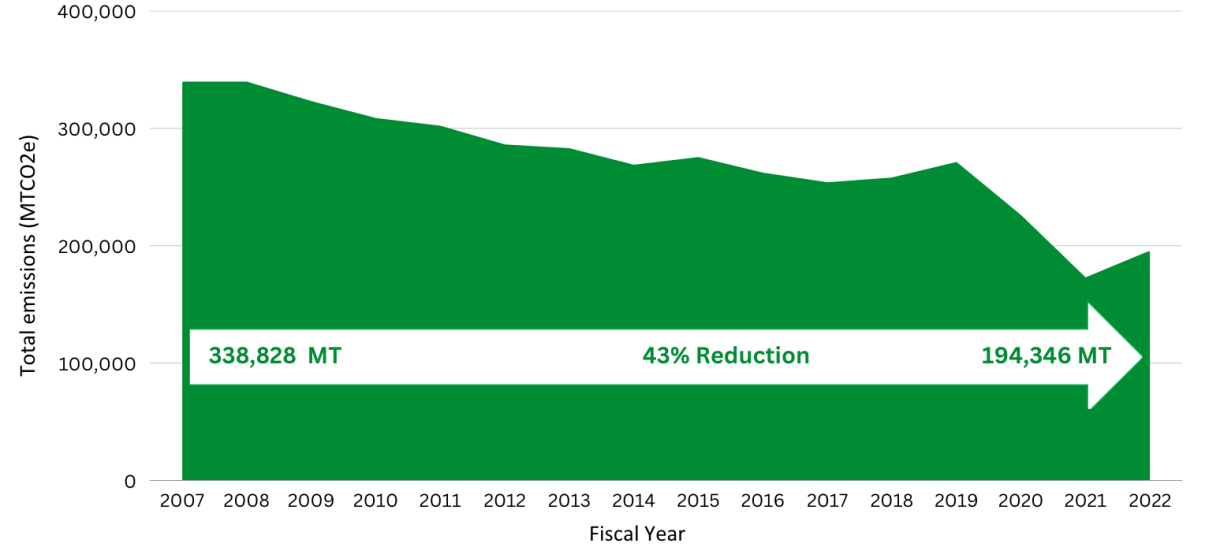
Emissions
GOAL: AGGRESSIVELY PURSUE CARBON NEUTRALITY IN 2024 AND BEYOND THROUGH A COMBINATION OF DIRECT EMISSIONS REDUCTION STRATEGIES AND CARBON OFFSETS.
Since the 2007 baseline, Duke University's overall greenhouse gas (GHG) emissions have decreased by 43%. However, compared to 2021, emissions have risen approximately 13%. This increase was expected and is largely due to campus operations ramping back up after pandemic-related reductions. The largest cause of this increase was transportation emissions, which more than doubled compared to 2021 as many Duke employees resumed commuting to campus. Air travel emissions are up significantly from 2021’s historic low, though this year’s total is still the second lowest of all time, representing emissions that are roughly half of the previous all-time low.
Sustainable Duke is exploring strategies to ensure that some of the emission reductions realized during the pandemic are locked in, and that emissions don’t simply return to pre-pandemic levels. The University has already embraced hybrid remote work for many employees, and is working with partners across campus to identify further emission reduction opportunities on campus.
Historical Greenhouse Gas Emissions

Carbon Offsets
Sustainable Duke’s offset staff finalized the development of its carbon offset evaluation and purchasing strategy and implemented it for the first time in 2022. They partnered with the professional offset project verifiers at Ruby Canyon Environmental to build an offset evaluation tool that is used to score projects. This tool was then tested and incrementally improved through a series of test project evaluations.
In addition to the evaluation tool, Sustainable Duke also convened an offset advisory committee to provide feedback on offset credits under consideration for purchase. The committee is composed of faculty from the Nicholas School of the Environment, Sanford School of Public Policy, and Law School, a graduate student at the Nicholas School, and Duke’s Director of Utility & Energy Services. They draw from their areas of expertise and experience to help further evaluate the projects and contribute to the due diligence process, after which projects are presented to an executive committee for final approval.